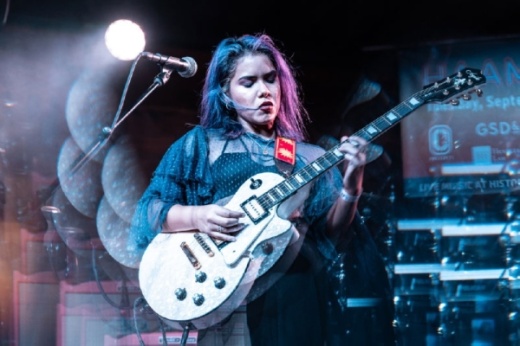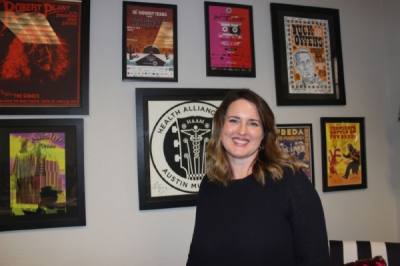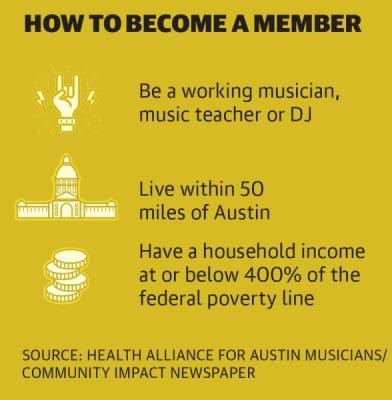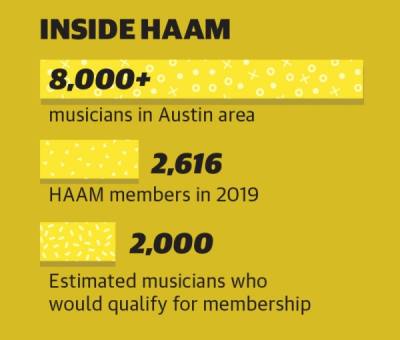Shad was a member of HAAM—the Health Alliance for Austin Musicians—and so was able to get surgery from one of the best hand doctors in town.
The local nonprofit provides access to affordable health care for Austin’s low-income working musicians.
“Without HAAM, he would have experienced financial ruin that would have prevented him from being able to stay in music,” said Rachel, who is now HAAM’s chief operating officer.
“It’s been really meaningful to me because I know that there are a lot of musicians out there, just like Shad, who without HAAM’s help would have to leave and go get a different type of job or would, like many other Americans, go bankrupt because of medical debt,” Rachel said of her job.
Since HAAM was founded in 2005, the organization has helped more than 5,350 musicians access over $73 million in health care services.
Members do not pay for coverage but instead—with the help of affiliate service providers and donors who give either dollars or their services as physicians—are able to access dental, vision, wellness and health care navigation services.
For every dollar donated, HAAM is able to leverage it into $7 of health care.
A “massive shift” occurred when the Affordable Care Act was signed into law in 2010, Rachel said. Before it took effect, around 80% of HAAM members were uninsured. In 2019, 86% of members were insured, she added.
Today, the organization serves over 2,600 musicians, music teachers and DJs who live in Austin and the surrounding area and have a household income at or below 400% of the federal poverty level.
For an individual, this amounts to an annual income at or below $51,040, according to the U.S. Department of Health and Human Services.
“Often times, we have musicians come in, and they are really terrified and scared because their body is breaking down in a particular way that would prevent them from being able to play,” Rachel said. “That might be because of asthma and difficulty singing. It might be because of a tooth problem and not being able to hit the right note with a horn.”
In addition to health care access, HAAM provides wellness services—from acupuncture to YMCA memberships—and will launch a specialty network in the next few months.
“We have great support from our community but do want Austinites to know that we could serve more people if we had more resources,” Rachel said. “All of the support that they can lend really goes a long way toward making sure that Austin preserves its cultural identity.”








